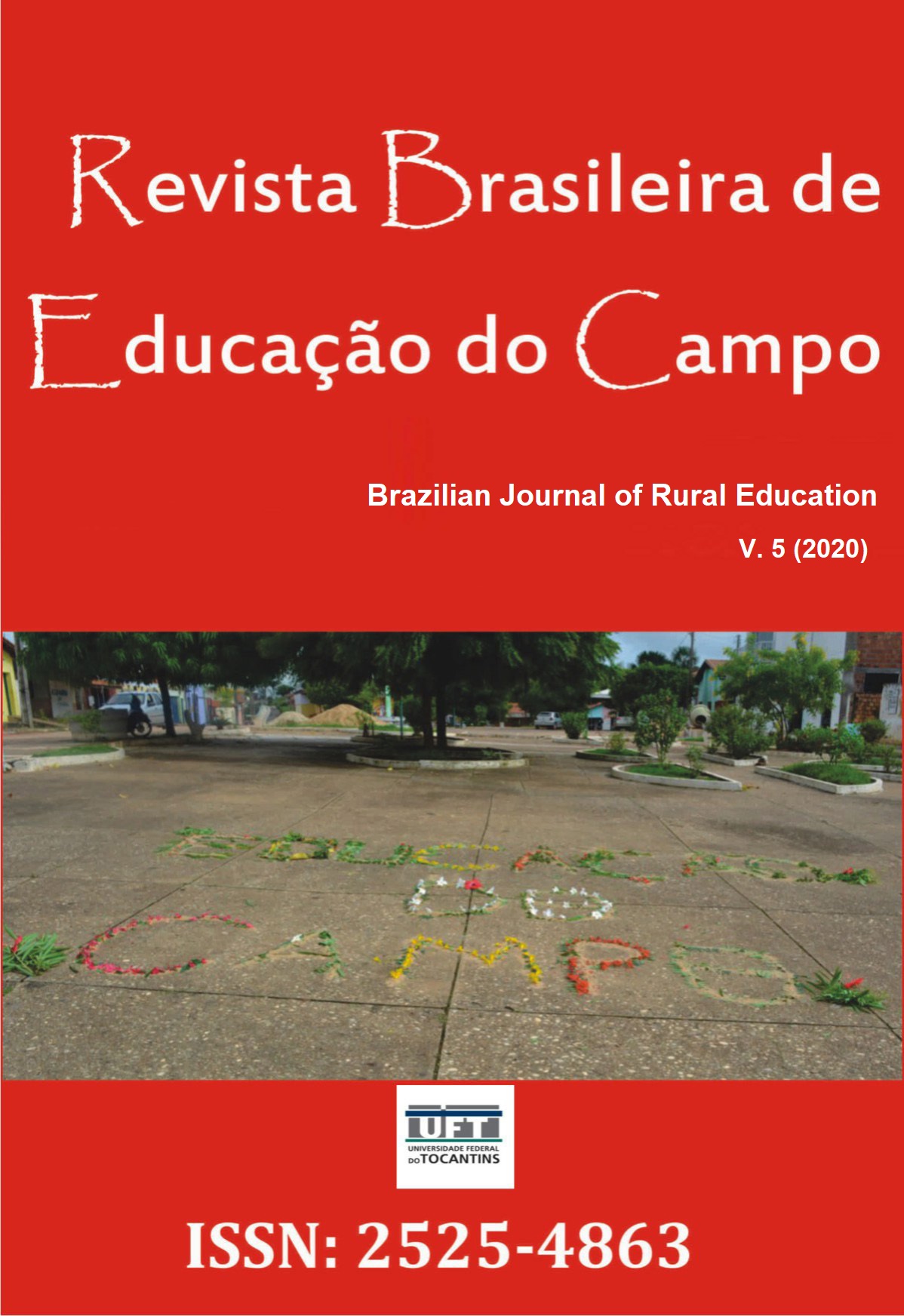Realistic Mathematic Education: a theoretical- methodological approach to the teaching of mathematics in countryside schools
DOI :
https://doi.org/10.20873/uft.rbec.e7879Résumé
ABSTRACT. The movement for a Rural Education still lacks investigations of methodological theoretical assumptions for the didactic field, based on the study of teaching practices that consider the object of knowledge and, at the same time, value the realistic/contextual aspect in which the student is inserted. From this perspective, we investigate the methodological theoretical implications of the theory of Realistic Mathematical Education (EMR) for the teaching of mathematics in the countryside school. Based on a qualitative methodological approach, a hypothetical learning path was elaborated based on the principles of EMR related to the teaching of analytical geometry, from the practice of soil modeling in passion fruit (passiflora edulis) cultivation. Our results point to the EMR as a promising methodological theoretical approach of didactic exploration to the countryside context capable of promoting formal reasoning, concepts in realistic situations, appropriation of mathematical language and potential for the development of concepts in the field of Cartesian geometry.
Téléchargements
Références
De lange, J. (1987). Mathematics, insight and meaning. Utrecht: OW & OC.
De Lange, J. (1999). Framework for classroom assessment in mathematics. Madison: WCER.
Ferreira, P. E., & Buriasco, R. L. (2015). Enunciados de tarefas de matemática baseados na perspectiva da Educação Matemática Realística. Bolema, 29(52), 452-472. https://doi.org/10.1590/1980-4415v29n52a02
Ferreira, P. E., & Buriasco, R. L. (2016). Educação matemática realística: uma abordagem para os processos de ensino e de aprendizagem. Educação Matemática Pesquisa, 18(1), 237-252.
Freudenthal, H. (1983). Didactical phenomenology of mathematical structures. Kluwer Academic Publishers New York, Boston, Dordrecht, London, Moscow.
Gravemeijer, K. P. E. (1994). Developing Realistic Mathematics Education. CD-ß Press/Freudenthal Institute, Utrecht, The Netherlands.
Gravemeijer, K. (1999). How emergent odels May Foster the constitution of formal mathematics. Mathematical Thinking and Learning, 1(2), 155-177. https://doi.org/10.1207/s15327833mtl0102_4
Gravemeijer, K. P. E., & Terwel, J. (2000). Hans Freudenthal: a mathematician on didactics and curriculum theory. Journal of Curriculum Studies, 32(6), 777-796.
Gravemeijer, K., Bowers, J., & Stephan, M. (2003). Chapter 4: A Hypothetical Learning Trajectory on Measurement and Flexible Arithmetic. In Stephan, M; Bowers, J; Cobb, P. Journal for Research in Mathematics Education (pp. 51-66). Retrieved from: https://www.researchgate.net/publication/46654962_Supporting_students'_development_of_measuring_conceptions_Analyzing_students'_learning_in_social_context_Journal_for_Research_in_Mathematics_Education_Monograph_No_12, accessed on November 7, 2019.
Gravemeijer, K. (2004). Learning trajectories and local instruction theories as means of support for teachers in reform mathematics education. Mathematical Thinking and Learning, 6(2), 105-128.
Instituto Nacional de Estudos e Pesquisas Educacionais Anísio Teixeira - INEP. (2011). Microdados do Sistema Nacional de Avaliação da Educação Básica - SAEB. Brasília: INEP.
Instituto Nacional de Estudos e Pesquisas Educacionais Anísio Teixeira - INEP. (2018). Microdados do Sistema Nacional de Avaliação da Educação Básica - SAEB. Brasília.
Rasmussen, C., & Blumenfeld, H. (2007). Reinventing solutions to systems of linear differential equations: A case of emergent models involving analytic expressions. Journal of Mathematical Behavior, 26(3), 195-210. https://doi.org/10.1016/j.jmathb.2007.09.004
Treffers, A., & Goffree, F. (1985). Rational analysis of realistic mathematics education – the Wiskobas program’. In Streefland, L. (Ed.). Proceedings of the Ninth International Conference for the Psychology of Mathematics Education (pp. 97–121). OW&OC; Utrecht University; Utrecht; The Netherlands.
Treffers, A. (1987). Mathematics education library. Three dimensions: A model of goal and theory description in mathematics instruction-the Wiskobas Project. Dordrecht, Netherlands: D Reidel Publishing Co.
Treffers, A. (1991). Didactical background of a mathematics program for primary education. In Streefland, L. (Ed.). Realistic Mathematics Education in Primary School (pp. 21–57). CD-ß Press, Utrecht.
Van Den Heuvel-Panhuizen, M. (2005). The role of contexts in assessment problems in mathematics. For the Learning of Mathematics, 25(2), 2-9.
Zandieh, M., & Rasmussen, C. (2010). Defining as a mathematical activity: A framework for characterizing progress from informal to more formal ways of reasoning. Journal of Mathematical Behavior, 29(2), 57-75.
Téléchargements
Publié-e
Comment citer
Numéro
Rubrique
Licence
Proposal for Copyright Notice Creative Commons
1. Policy Proposal to Open Access Journals
Authors who publish with this journal agree to the following terms:
A. Authors retain copyright and grant the journal right of first publication with the work simultaneously licensed under the Creative Commons Attribution License that allows sharing the work with recognition of its initial publication in this journal.
B. Authors are able to take on additional contracts separately, non-exclusive distribution of the version of the paper published in this journal (ex .: publish in institutional repository or as a book), with an acknowledgment of its initial publication in this journal.
C. Authors are permitted and encouraged to post their work online (eg .: in institutional repositories or on their website) at any point before or during the editorial process, as it can lead to productive exchanges, as well as increase the impact and the citation of published work (See the Effect of Open Access).














